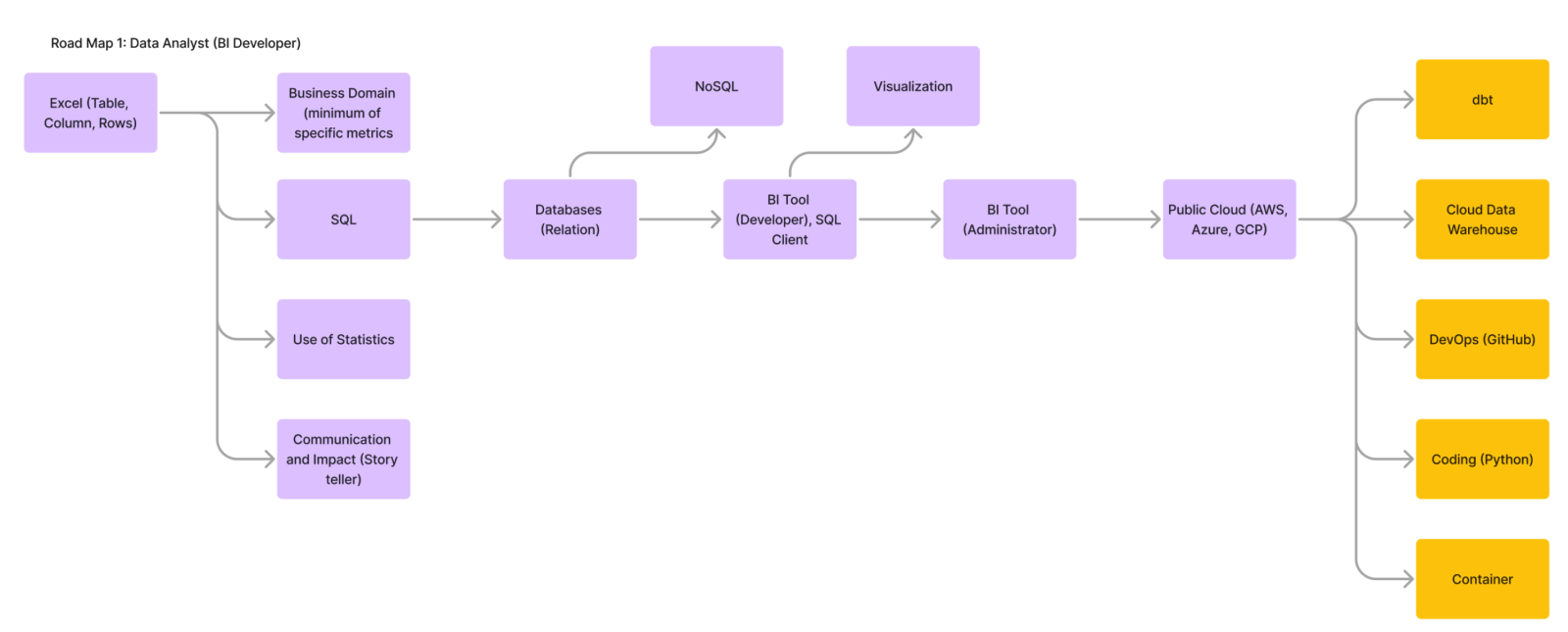Data Analyst
About the role
Data analyst collects, cleans, and interprets data sets in order to answer a question or solve a problem. They play a crucial role in helping organizations leverage data-driven insights to:
- optimize processes
- improve decision-making
- and achieve their business objectives
They work in many industries, including business, finance, criminal justice, science, medicine, and government.
What kind of customers should a business target in its next ad campaign? What age group is most vulnerable to a particular disease? What patterns in behavior are connected to financial fraud?
These are the types of questions you might be pressed to answer as a data analyst. Read on to find out more about what a data analyst is, what skills you’ll need, and how you can start on a path to become one.
Who is this role for
This role is perfect for individuals who:
- have a passion for problem-solving
- a keen eye for detail
- a love for numbers.
If you enjoy uncovering patterns, drawing meaningful conclusions from data, and translating insights into actionable recommendations, then data analysis could be your calling.
While a background in mathematics, statistics, or computer science can be beneficial, this role is open to anyone with a curious mind and a willingness to learn.
Data analytics tools
During the process of data analysis, analysts often use a wide variety of tools to make their work more accurate and efficient. Some of the most common tools in the data analytics industry include:
- Microsoft Excel
- Google Sheets
- SQL
- Tableau
- R or Python
- SAS
- Microsoft Power BI
- Jupyter Notebooks
Career roadmap

Salaries and compensation
In Canada the average data analyst salary is CAD $91,173 per year or $46.76 per hour. Entry-level positions start at $65,364 per year, while most experienced workers in major urban centers like Toronto and Vancouver make up to $140,148 per year. In addition to base salaries, many companies offer performance bonuses, stock options, and other financial incentives.
Source ca.talent.com
Data analysts in the United States generally earn higher salaries compared to their Canadian counterparts, with average annual earnings around USD $99,501 per year or $47.84 per hour. Entry level positions start at $80,249 per year while most experienced workers in tech hubs like San Francisco, New York and Seattle can earn up to $138,750 per year. U.S. employers often provide additional benefits such as health insurance, retirement plans, and substantial bonuses, enhancing overall compensation packages.
Source talent.com
How the course can help you
- Curriculum coverage - We offer a comprehensive curriculum covering databases, business intelligence, cloud computing fundamentals, cloud data warehouses, and many more. Proficiency in these tools is critical for data analysts, and coursework provides structured learning opportunities to master them.
- Demanded tools proficiency - Learn from scratch SQL, Tableau, Power BI and Looker.
- Complex concepts explained in simple language - Led by experienced lecturers, our course breaks down complex ideas into simple, easy-to-understand language, making data analytics accessible to everyone.
How our community can help you
- Collaborative learning environment - in Surfalytics we help each other understand complex concepts and solve challenging problems. Working together with peers often leads to deeper insights and more creative solutions.
- Emotional support - Becoming a data analyst can be challenging, and having a supportive peer network can make a significant difference. Our members offer encouragement, share experiences, and provide camaraderie, helping alleviate stress and keep motivation high.
- Knowledge sharing - Surfalytics community brings diverse backgrounds and perspectives to the table. By sharing knowledge and resources, you can learn about different tools, techniques, and best practices that you might not encounter in your coursework alone.
- Networking opportunities - Members introduce each other to their professional networks, expanding the pool of potential job opportunities.
- Portfolio development - by completing diverse projects, you will build a portfolio that showcases your skills to potential employers
- Career services - share your resume for review and get comprehensive feedback from industry professionals. Participate in mock interview sessions and grow together with our community!